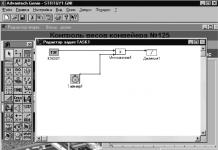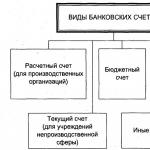From all of the above, it follows that management psychology is a branch of psychological science that combines the achievements of various sciences in the field of studying the psychological aspects of the management process and is aimed at optimizing and increasing the efficiency of this process.
2. Subject and tasks of management psychology
Understanding management as a profession based on all kinds of achievements in the interdisciplinary field of scientific and practical knowledge occupies a strong place in modern society. Currently, it is believed that a manager at any level is called upon to solve two interrelated tasks:
· master the theoretical foundations of rational management, i.e. management science;
· be able to creatively apply the provisions of this science, that is, master the art of management. The first task is solved in the learning process, the second - in the process of practical activity.
The activities of leaders (managers), implemented in the performance of basic management functions, is the subject of management psychology.
The subject of management psychology is the psychological aspects of the process of managing various types of joint activities and interpersonal communication in organizations, i.e. psychological aspects of managerial relations. A specific manifestation of the subject of management psychology can be presented at the following levels of psychological and managerial issues:
1. Psychological aspects of a manager’s activity:
Psychological characteristics of managerial work in general, its specificity in various fields of activity;
Psychological analysis of the leader’s personality, psychological requirements for the personal qualities of the leader;
Psychological aspects of making management decisions;
Individual management style of a leader and problems of its correction.
2. Psychological aspects of the organization’s activities as a subject and object of management:
Possibilities of using psychological factors to solve management problems;
Patterns of formation of a favorable socio-psychological climate in an organization;
Patterns of formation of optimal interpersonal relationships in an organization, the problem of psychological compatibility;
Formal and informal structures of the organization;
Motivating the work of members of the organization;
Value orientations in the organization, management of the process of their formation.
3. Psychological aspects of interaction between the leader and members of the organization:
Problems of creating and operating a communication system in the process of interaction;
Problems of managerial communication;
Optimization of relationships in the “manager – subordinate” link;
Awareness as a factor in increasing effective management.
The fundamental attention of managers is paid to making decisions on all fundamental and strategic tasks, coordinating the work of performers, and selecting and training personnel.
The main task of the manager is general management of the process of functioning and development of the management system.
A management system is understood as an integral organizational association, characterized by:
Functions and goals of activity;
A specific set of components that are subordinate;
External relations regime (subordination, coordination, contractual relations, etc.);
Legal regulation of the structure, connections, powers, activities of the management system as a whole and its elements.
A survey of many managers showed that by the subject of management activity they mean management decisions, teams, personnel, etc.
The subject of management psychology can also be the subject of the administrator’s work – information. The manager receives information both regarding the system as a whole and in relation to individual processes or subsystems. Then he transforms it, giving the information a qualitatively different character. The transformation of information is focused on subsequent moments in time, on the near or distant future, i.e. into a system of models: static (fixing some ideal sample) or dynamic (fixing the tempo, temporary aspects of the functioning of the system). The information emanating from the manager (what is commonly called a management decision) has an incentive function. Thanks to this, the solution is implemented through the activities of performers. The result of this entire cycle should be a change in the state of the managed system.
The subject of management psychology is the activities of officials who lead teams, and management psychology is a complex system of knowledge relating to the following aspects of management activity:
Psychological factors ensuring the successful and effective activity of a manager;
Psychology of people's motivation in the process of their activities;
Features of group behavior and interpersonal relationships;
Psychological aspects of leadership, features of decision-making;
Psychology of power and organization;
Issues of psychological climate in the team;
Psychological conflictology.
Management psychology deals with the specifics of the psychological factors of joint activity and the method of its psychological organization.
In addition, managerial psychology provides psychological training for managers and executives. We can talk about two parameters of the effectiveness of a leader or manager:
Non-psychological (we can talk about the profitability or unprofitability of the enterprise, its competitive prospects, etc.);
Psychological (in this case, the degree of satisfaction of people working in the organization, the quality of communication, the motivation of their behavior, etc. are taken into account).
It is obvious that both of these parameters are interrelated: the effectiveness of organizations, i.e. the ability to solve the problems facing them in the best or optimal way increases if an appropriate psychological climate is created in them. And the knowledge gained by managers as a result of studying management psychology helps to competently manage people, avoid unnecessary conflicts, understand the psychological nature of management processes, effectively solve the problem of recruiting personnel for the organization, analyze and improve the psychological climate in the team, and correctly evaluate their own activities.
Thus, management psychology strives to make the work of managers easier and more effective with the help of knowledge about the psychological characteristics of a person, about the various manifestations of the psyche, its functional, changeable nature.
Objectives of management psychology:
Psychological analysis of the activities of specialist managers;
Study of the mechanisms of mental regulation of work activity in normal and extreme conditions;
Study of mental characteristics of leadership;
Study of group interaction processes;
Study of human motivation mechanisms.
Psychological analysis of the activities of specialist managers. In order to competently lead a team and successfully perform work, you need to be able to analyze your actions, which determine the making of the right decisions.
Study of the mechanisms of mental regulation of work activity in normal and extreme conditions. In order to make an adequate decision in any situation, you need to study the mechanisms of work activity.
Study of mental characteristics of leadership. Leadership is the process by which one individual influences the behavior of others and organizes their activities in accordance with the relationships established by the organization. Managers differ in their individual styles and approaches to management. One of the key differences is the extent to which managers guide their subordinates, i.e. the extent to which they direct subordinates how their work should be done. Another difference is the measure of their autocriticism or democracy in the decision-making process, i.e. to what extent they allow subordinates to participate in this process, for this we need to study the mental characteristics of leadership.
Development of psychological recommendations for the use of psychological knowledge in the management process, in conflict resolution, and changing the psychological climate in organizations. Attitudes towards work and colleagues are stable feelings expressed in beliefs and types of behavior; they are aimed at production activities, members of their work group, and the organizational environment. The most important indicator of attitude towards production activities is job satisfaction.
Current page: 1 (book has 26 pages total) [available reading passage: 6 pages]
Alexander Trus
Psychology of management. Workshop
Reviewers: Department of Social Psychology, Faculty of Psychology, Belarusian State Pedagogical University named after Maxim Tank (head of the department, Candidate of Pedagogical Sciences, Associate Professor G. V. Gatalskaya); Doctor of Psychology, Professor I. A. Furmanov.
© Trus A. A., 2015
© Design. UE “Higher School Publishing House”, 2015
Preface
In 2014, the Higher School publishing house published the textbook “Psychology of Management.” The book, aimed at a student audience, was also positively received by students of the additional education system - specialists undergoing retraining in personnel management, undergraduates, students of MBA programs, as well as managers of various organizational and managerial levels of state and commercial enterprises, HR specialists, business coaches and organizational consultants.
Taking into account that the textbook “Psychology of Management” covered a wide range of theoretical principles of the activity of a modern leader, ranging from issues of effective self-organization to the psychological aspects of individual and group work with employees, it was decided to write workshop, which would allow readers to gain not only knowledge useful for their work, but also to develop relevant management competencies.
The work of both a future leader and an already formed manager, focused on progressive career growth and obtaining high results in his work, as well as in the activities of the organizational entity he heads, must be continuous. Currently, as the author’s coaching and consulting experience shows, most large organizations have corporate training centers for continuous training and retraining of personnel. The question, in our opinion, is the desire of the manager to systematically and purposefully replenish his knowledge with current “knowledge - abilities - skills”, to form and develop the necessary personal characteristics in order not only to respond to the challenges of the current situation, but to take a proactive approach to his activities .
This book will allow the manager to work independently to develop his managerial competencies, and can also be used in the university educational process and in a corporate format. While working on its content, we, first of all, started from the very concept of “practicum”. In the Russian language dictionary of S.I. Ozhegov (1987) we find the following definition: “Practicum. In higher educational institutions: a course of practical training in any academic subject.”
The word “practicum” consists of two independent components – “practitioner” and “mind”, the combination of which can be interpreted in two ways: “practical (or practical) mind” and “smart practice”. Regarding the first phrase, the famous Soviet psychologist B. M. Teplov in his book “The Mind of a Commander” (1990) notes: “The difference between theoretical and practical thinking is that they are differently related to practice; not that one of them has a connection with practice, and the other does not, but that the nature of this connection is different. The work of practical thinking is mainly aimed at solving specific problems - organizing the work of a given plant, developing and implementing a battle plan, etc. - while the work of theoretical thinking is mainly aimed at finding general patterns - principles of production organization, tactical and strategic patterns and etc.”
The workshop and its electronic supplement present a large number of organizational, managerial and communication situations taken from the work experience of domestic managers at various levels.
Further, from B. M. Teplov we find: “A practitioner’s ability to use hypotheses is incomparably more limited, since these hypotheses must be tested not in special experiments, but in life itself, and - what is especially important - a practical worker does not always have time for this kind of checks. The harsh conditions of time are one of the most characteristic features of the work of the practical mind.” Let’s turn to the second phrase – “smart practice”. The book, in which you have already read several pages, is a kind of simulator for developing various management skills and forming professionally significant personal characteristics. The experience gained can and should be carried into your practical activities, using not only proven tools, but also implementing ideas that will undoubtedly arise in you when completing the proposed tasks.
...The best thing a book can do for a person is to make him take action.
Thomas Carlyle
Further, B. M. Teplov notes: “If we are to establish gradations of activity according to the difficulty and complexity of the demands placed on the mind, then we will have to admit that from the point of view of the diversity and sometimes internal inconsistency of intellectual tasks, as well as the rigidity of the conditions in which mental work, the first places should be taken by the highest forms of practical activity.”
Taking into account the relatively young age of management psychology as a science and area of professional practice, as well as the complexity and uneven development of its individual provisions, we turned to the ideas presented in the works of some authoritative specialists from related fields, to which references are given in the text of the workshop. If desired, the learner (student, listener, master's student) or trainer (teacher, business trainer, organizational consultant, coach) can turn to the primary source to obtain more detailed and detailed information.
The workshop is aimed at increasing the managerial competence of a specific reader - both today's student planning to make a managerial career in the future, and a “veteran of the management movement.” The more competent managers there are, the more successful the individual structural unit and the enterprise in which they work will be. The more efficient enterprises there are, the stronger and more prosperous our country will be. We hope that the book “Psychology of Management. The workshop will make a certain contribution to achieving these goals.
Chapter 1. The manager is the central figure of the management process
Renowned psychologists Jim Lauer and Tony Schwartz (2014) note that we live in a digital age. We are running at full speed, our rhythms are accelerating, our days are cut into bytes and bits. We prefer breadth to depth and quick response to thoughtful decisions. We skim across the surface, ending up in dozens of places for a few minutes, but never staying for long. We fly through life without pausing to think about who we really want to become. We are connected, but we are disconnected.
The first step in the work of a psychologist (consultant, coach) with a business owner (professional manager) is to analyze the client’s personal characteristics. Such an analysis reveals individually for each of them the meaning of the short but capacious phrase: “Know yourself.”
We offer readers techniques aimed at conducting personal, managerial and professional self-analysis.
“Know yourself” - these words were written above the entrance to the oracle in the Delphic temple. Subsequently, they were repeated many times by many sages. Examples of successful business people - business owners and professional managers - have confirmed that this advice works.
...Self-knowledge is the greatest achievement of our species.
Founder of positive psychology M. Csikszentmihalyi
“Management begins with oneself” - this phrase must be accepted as an axiom by every subject of the difficult management process. A leader who knows his strengths and weaknesses, his shortcomings, but continuously learns - develops - improves, creates the prerequisites for the professional growth of his employees, and therefore, for increasing the efficiency of the structural unit or the organization as a whole. Self-knowledge of a leader is the first step towards setting clear career, managerial and professional goals, identifying personal resources to achieve them, and directing energy towards steady movement towards them. At the same time, he will be able to competently organize himself, his working time and space.
1.1. Conducting your own SWOT analysis as a manager
SWOT technique (an abbreviation made up of the first letters of the English words: strength, weakness, opportunities and threats) involves identifying strengths and weaknesses, threats and opportunities, as well as establishing chains of connections between them, which can later be used to formulate a strategy and assess the feasibility of planned results activities of the leader.
This technique is now quite common in the business environment and is usually used to assess the current state and development potential of an enterprise. It, as a rule, relates to the marketing area of organizational, managerial and business practice and is implemented as one of the effective tools at strategic planning sessions, during management audits of business entities, as well as in various advisory systems.
To conduct your own SWOT analysis as a manager, complete the assignment.
Draw a square on a sheet of A4 paper (Fig. 1.1). Divide it into four equal parts with vertical and horizontal lines. Write at the top of each of the four squares, centered:
– my strengths (S);
– my weaknesses (W);
– my capabilities (O);
– my threats (T).
Fill in these squares as they apply to yourself (present tense).
Rice. 1.1. SWOT Analysis Matrix
One of the main conditions when filling out your SWOT analysis matrix is honesty and sincerity. You shouldn’t highlight your strengths, just as you shouldn’t engage in self-criticism or pay attention exclusively to your shortcomings. A systematic balanced analysis will allow you to look at yourself “as if from the outside” in order to further outline “points of growth” and draw up a plan for immediate actions to change your own in the right, desired, constructive direction.
...The real joy of life is to have a purpose, the importance of which you yourself understand... To be natural and strong, and not one of a bunch of neurasthenics and whiners complaining that life does not care about their happiness.
Bernard Show
If you are a manager or a specialist planning to make a management career, before filling out this matrix, it is recommended to talk with your immediate and direct managers, colleagues, subordinates, and business partners in order to collect the most detailed and multifaceted feedback from them. As they say, “you can see better from the outside” and “big things are seen from a distance.” Thus, you will undergo a procedure for yourself, which in modern personnel technologies is called a “360-degree assessment.” As a result, you can get very useful and valuable information for yourself, which will allow you to conduct a realistic, objective SWOT analysis, without an obvious bias either into “odes of praise” or into negative value judgments about yourself.
In return, promise your “experts” that they will also be able to turn to you to receive objective feedback if they need it.
If you are a student or student of an MBA program, you can involve your classmates as “experts”, and also seek feedback from the teachers and group supervisor. For a “third-party perspective,” you can use information received from your friends and acquaintances.
Don't be surprised if different people rate the same side of your personality differently. Some will think that you are a decisive and assertive person, while for others you are an example of measuredness and leisureliness. This is very valuable information for you, provided that you use it wisely, both for further self-analysis and for asking your “experts” clarifying questions for clarification.
Such questions include the following.
In what situations does this quality manifest itself most clearly in me?
What examples can you give?
Do you think this quality helps (hurts me) in my studies (in work, in management practice, in business interactions)? What exactly, in your opinion, is its negative (positive) impact?
How can I use this quality to improve the effectiveness of my studies (work), or do I need to “part with it”, get rid of it?
...No one should become a victim of their own biography.
Psychologist George Kelly
The main idea and directions for further work with the completed matrix:
Increase and develop your strengths;
Work with weaknesses (minimize their impact until completely eliminated);
Rely on existing opportunities;
Keep marked threats in “manual control” mode.
When working with the SWOT technique, remember that opportunities and threats can turn into their opposites. Thus, an unused opportunity can become a threat. Or, conversely, a successfully prevented threat can create additional strengths and open up new opportunities (Table 1.1).
Table 1.1
SWOT Results Analysis

Here is what the famous Russian marketing specialist I. Mann (2014) writes about this: “From experience: an honest list of weaknesses (and it turns out to be quite long) is often paralyzing. Some experts recommend starting with them (to overcome yourself). Others advise: “Don’t waste a moment of your precious life overcoming your weaknesses!”
I am for the golden mean. There are weaknesses that you can ignore, that you can learn to work and live with, that you can use to your advantage. And there are weaknesses that need to be eliminated, defeated, overcome.
Use all your capabilities. Consider risks. How easy it is to write and how difficult it is to do!
You can’t imagine how much effort and time I had to put into understanding the topic of Internet marketing! It took several years to move from complete zero to the current status (and now I teach others proper Internet marketing). A clear and thoughtful plan is important here.”
Start conducting your own SWOT analysis now.
1.2. Personal development model “Johari Window”
When a future or current leader begins to engage in personal and professional self-development and sets out to learn more about himself, he inevitably has many questions, among which two are sure to be present:
What kind of person am I?
Am I the way I perceive myself “from the inside,” or do other people “see better” from the outside?
Even someone who constantly cares about the development of his own personality often finds it difficult to structure his idea of himself, that is, he cannot formulate an understanding of his own personality in an orderly form. One of the tools for solving this problem is the so-called “Johari Window”. The Johari Window shows how well a person knows himself, helps to understand how others treat him, establish communication with other people, or improve understanding in a team.
This technique was proposed by Joseph Luft and Harry Ingham in 1955 and has not lost its relevance to this day. The name "Johari" is a derivative of the names of these psychologists. The “Johari Window” model is called both a model of self-knowledge and a model of personal growth, but no matter what the model is called, with its help a leader can “look inside himself,” try to find his weaknesses and understand how to strengthen his strengths.
...The stability that we lack in the world around us should be created within ourselves.
Nathaniel Branden
“Window” (Fig. 1.2) is a symbolic image of a person’s personality. It is divided into four squares (zones).

Rice. 1.2. Johari window
Zone 1 (Open Self) represents that part of a person’s personality that is known both to the person himself and to others. When people exchange information and understand each other, their relationships improve. The larger the area of this square, the more information about the individual is known, the more effective, productive and mutually beneficial the relationships between people will be.
Zone 2 (Blind Self) corresponds to that part of the personality that others know about, but the person himself does not know about. The larger the area of this square, the more difficult it is to achieve mutual understanding.
...A person who doubts himself puts himself on the list of his own enemies and turns the gun on himself.
Alexandr Duma
Zone 3 (Hidden Self) is a part of the personality known to the person himself, but unknown to others. This makes communication difficult because it gives one-sided advantages to the individual and allows one to hide negative information from others. There is information that people are hesitant to share simply because they do not consider it important, but much more often information is not shared because of the desire to gain influence or gain control over the situation.
Zone 4 (unknown “I”) is that which is unknown about the person neither to the person himself nor to those around him. It is by reducing the area of this square that, if desired, the efficiency of communications can be increased.
When a person interacts with the environment, zones 1–3 usually increase at the expense of zone 4. With a developed habit of introspection, a person can effectively use the unknown “I” to develop his psychological repertoire, master new knowledge and skills, and expand his comfort zone. The concept of comfort zone is used to describe situations in which a person feels familiar and comfortable. This zone can be expanded by identifying unknown individual abilities.
The effectiveness of the Johari Window concept can be clearly illustrated through works of art. The American film “Hero”, in which D. Hoffman plays the main role, allows you to open up almost all areas of the “Johari Window”. The hero of the film, a petty thief who is capable of robbing even his lawyer, turns out to be capable of real feats, and despite his own declared “philosophy” of life, “all people are enemies.”
Expanding the open self can be effectively accomplished through feedback from people's interactions. A person must learn to receive this feedback and use it for self-reflection.
Exercise
Draw the Johari Window on a piece of paper.
Answer the following questions.
– By what signs do you determine other people’s reactions to your behavior?
– How do you react to another person's strange or unexpected reaction to your behavior?
– How often do you openly ask for evaluation of your behavior or activities?
– How tolerant are you to criticism?
By asking yourself these questions candidly, you can get an idea of what you need to work on to better use feedback from others for self-reflection.
M. Byaugo and J. Milne (2014) suggest “five key questions to ask yourself.”
1. When am I happiest?
2. Why does this particular activity bring me happiness?
3. What opportunities do I have to build a business around the activities that bring me the most happiness?
4. What's stopping me?
5. How can I overcome existing obstacles and, in the next twelve months, develop a new worldview that will help me follow the path of my destiny?
1.3. Winner list
Awareness of one's successes and gaining legitimate pride in them are the most important components of the progressive development of a leader, components of constructive changes on his personal and managerial scale. However, in a rapidly changing market environment and in a dynamic organizational and managerial situation, he does not always manage to deservedly celebrate his achievements. Sometimes, without having time to enjoy the results obtained, you need to return to your duties, take on a new job, and move towards the next, more ambitious goal.
You should be aware that well-deserved success contains a powerful resource, considerable energy potential, which is necessary for a leader to maintain self-confidence, in their strengths and capabilities. If he does not have enough time to realize and evaluate his own achievements, he is unlikely to be able to feel that he has changed for the better, grown as a manager and professional. Maintaining adequate self-esteem is an important component of a leader’s psychological culture.
...Being an optimist means seeing things in a good light and not losing hope and faith that everything will be okay.
Brandon Burchard
As the coaching and consulting experience of the author of the workshop shows, throughout their management career, managers win many “big” and “small” victories. However, in the pursuit of conquering more and more business and managerial heights, it is difficult for such managers to appreciate that they have become more successful, more competent, more confident and stronger than they were some time ago. Truly successful leaders often do not feel successful because they are focused on future achievements. They overlook the wonderful results obtained in the “here and now” situation, which deprives them of the opportunity to feel like a winner and give themselves an adequate, well-deserved assessment.
Exercise
Take five sheets of A4 paper and title each one “My managerial victories and professional achievements for the year 20__.”
Remember all your managerial, commercial, professional and other successes over the past five years, and write them down in a column on the appropriate sheet of paper.
Don't try to complete all the sheets in one sitting. This task is quite labor-intensive and complex. Allow a few days to complete it. As more and more new situations, facts, events, lists will grow from the “bins” of your memory.
When the lists are ready, conduct a detailed analysis of them by answering the following questions.
– What are you most proud of?
– What allowed you to achieve such wonderful results?
– How have you changed over these five years?
You can seek help from one of your fellow managers, your coach, an HR specialist, or a significant person who knows you well, is able to listen, support and share the joy of well-deserved victories.
Introduce the habit into your daily practice - when summing up your work results at the end of the day, pay more attention to what you managed to do, what results you achieved (even if, at first glance, these are “little things”). This will allow you to gain a well-deserved sense of pride and gratitude to yourself for everything you did during the day.
If you keep a personal diary, add one more option to it. Mark in it at the end of the week on Friday how you have changed, what new knowledge and skills you have gained, what you have achieved.
Consider the question: “How can I celebrate my achievements and instill in myself the mindset of a successful leader?”
Completing the task will allow you to feel successful, feel more confident, and adequately assess the dynamics of your development.
Practical tasks
Analyze management situations in writing and answer the questions formulated after each of them.
Exercise 1.
Situation 1. You have recently been appointed HR Manager. You still don’t know the company’s employees well; the employees don’t yet know you by sight. You go to a meeting with the CEO. You walk past the smoking room and notice two employees smoking and having an animated conversation about something. Returning from a meeting that lasted one hour, you again see the same employees in the smoking area having a conversation.
What would you do in this situation? Explain your behavior.
Situation 2. You are the head of a department. There is a tense situation in the department; work deadlines are being missed. There are not enough employees. While going on a business trip, you accidentally meet your subordinate - a young woman who has been on sick leave for two weeks. But you find her in perfect health. She is eagerly greeting someone at the airport.
What will you do in this case? Explain your behavior.
Situation 3. One employee complains to another about numerous and frequently repeated errors in her work. The second employee takes the complaints expressed as an insult. A conflict arose between them.
.
Situation 4. The manager hired a specialist who should work for his deputy. The hiring was not approved by the deputy. The inability of the hired employee to perform his duties soon became apparent. The deputy reports this to the manager with a memo...
What would you do if you were a leader? Play out possible situations.
Situation 5. In response to criticism from a subordinate, voiced at an office meeting, the boss began to find fault with him over trifles and increased control over his official activities.
What is the cause of the conflict? Define the conflict situation.
Task 2
Analyze the situations below and choose from the proposed answers the one that you consider most appropriate for a particular situation.
Situation 1
Your immediate superior, bypassing you, gives an urgent task to your subordinate, who is already busy with another important task. You and your boss consider your tasks urgent.
Choose the solution that is most suitable for you.
A. Without challenging the boss’s assignments, I will strictly adhere to the official chain of command and invite the subordinate to postpone the current work.
B. It all depends on how authoritative the boss is for me.
B. I will express to the subordinate my disagreement with the boss’s assignment, I will warn him that in future in such cases I will cancel tasks assigned to him without my consent.
D. In the interests of business, I will offer the subordinate to complete the work begun.
Situation 2
You have received two urgent tasks at the same time: from your immediate superior and your superior. You do not have time to agree on deadlines for completing tasks; you need to start work urgently.
Choose your preferred solution.
A. First of all, I will begin to carry out the task of the one I respect more.
B. First I will complete the most important task, in my opinion.
B. First, I will complete the task of my superior.
D. I will carry out the assignment of my immediate superior.
Situation 3
A conflict has arisen between two of your subordinates that is preventing them from working successfully. Each of them individually turned to you with a request that you sort it out and support his position.
Choose your behavior in this situation.
A. I must stop conflict at work, but resolving conflict situations is their own business.
B. It is best to ask representatives of public organizations to sort out the conflict.
B. First of all, personally try to understand the motives of the conflict and find a way of reconciliation acceptable to both.
D. Find out which member of the team serves as an authority for those in conflict, and try to influence these people through him.
Situation 4
During the most intense period of completing a production task, an unseemly act was committed in the brigade, labor discipline was violated, which resulted in a defect. The foreman does not know the culprit, but he must be identified and punished.
What would you do if you were the foreman? Choose the solution that suits you.
A. I will leave the clarification of the facts on this incident until the completion of the production task.
B. I will call those suspected of wrongdoing to me, I will have a cool talk with everyone face to face, I will offer to name the culprit.
B. I will inform those of the workers whom I trust most about what happened, I will invite them to find out the specific culprits and report.
D. After the shift, I will hold a team meeting and publicly demand that the perpetrators be identified and punished.
Situation 5
You are given the opportunity to choose your deputy. There are several candidates. Applicants are distinguished by the following qualities.
A. The first one strives, first of all, to establish friendly, friendly relations in the team, to create an atmosphere of mutual trust and friendship at work, and prefers to avoid conflicts, which is not understood correctly by everyone.
B. The second often prefers, in the interests of the cause, to aggravate relations “regardless of persons”; he is distinguished by a heightened sense of responsibility for the assigned task.
B. The third prefers to work strictly according to the rules, is always careful in performing his job duties, and is demanding of his subordinates.
D. The fourth is distinguished by assertiveness, personal interest in work, focused on achieving his goal, always strives to complete the job, and does not attach much importance to possible complications in relationships with subordinates.
Situation 6
You are invited to choose your deputy. Candidates differ from each other in the following features of their relationship with their superiors.
A. The first quickly agrees with the opinion or order of the boss, strives to fulfill all his tasks clearly, unconditionally and on time.
B. The second can quickly agree with the opinion of the boss, carry out all his orders and tasks with interest and responsibility, but only if the boss is authoritative for him.
B. The third has rich professional experience and knowledge, is a good specialist, a skillful organizer, but can be difficult to get along with and difficult to communicate with.
D. The fourth is a very experienced and competent specialist, but he always strives for autonomy and independence in his work, and does not like to be disturbed.
Situation 7
When you happen to communicate with employees or subordinates in an informal setting, what are you more inclined to do?
A. Conduct conversations that are close to your business and professional interests.
B. Set the tone for the conversation, clarify opinions on controversial issues, defend your point of view, strive to convince others of something.
B. Share the general topic of conversation, do not impose your opinion, support a common point of view, strive not to stand out with your activity, but only listen to your interlocutors.
D. Strive not to talk about business and work, to be a mediator in communication, to be relaxed and attentive to others.
Reviewer
Management psychology: Workshop. – Stavropol: Publishing house SKI BUK, 2008. - 94 p.
Workshop
Psychology of management
E.V. Gukasova
K.M. Ohanyan
Tsyrenova Anzhelika Antsiferovna
PRACTICUM ON THE COURSE
"FUNDAMENTALS OF MANAGEMENT THEORY"
Workshop for the course “Fundamentals of Control Theory”
EDUCATIONAL MANUAL teaching aid
Editor R.A. Bagaeva
Signed for printing 228.1204.2011 Format 60X 60x84 1/16
Conditional p.l. 17.90255.3 Circulation 100 copies. Order No. 29399
Publishing house VSGUTU
670013. Ulan-Ude, st. Klyuchevskaya 40, in
@© VSGUTU, 2011
Ph.D. psychol. Sciences, Associate Professor K.M. Ohanyan,
Ph.D. economy Sciences, Associate Professor E.V. Gukasova
Ph.D. tech. Sci., Professor Borisov S.V.
The workshop includes questions for discussion, essay topics, recommended reading, psychological tests and problem situations on the course topics.
Designed for students studying the discipline “Management Psychology”, specializing in “Organization Management”, “Economics and Enterprise Management”.
© Publishing House SKI BUK
Introduction………………………………………………………………………………..
Topic 1. Psychology of management as a science……………………………………………………………………..
Topic 2. Personality as an object and subject of management……..……………………………………………………
Topic 3. The art of managing people…………...………………………………………….
Topic 4. Communication and management activities……………………………………………………….
Topic 5. Business conversation as a type of managerial communication…………………………………..
Topic 6. Business meeting as a type of management communication……………………………..
Topic 7. Negotiations as a type of management communication………………………………………………………..
Topic 8. Making management decisions and solving management problems……………
Topic 9. Conflicts and stress in business communication…………………………………………….
Topic 10. Ethics, culture and etiquette in business communication……………………………………………………….
Topics of scientific works, reports on the discipline “Psychology of Management”.........
Glossary of terms…………………………………………………………………………………………
Literature…………………………………………………………………………………………..
When talking about management, we most often mean its economic or technological aspects. But no less important, and sometimes decisive, are its psychological aspects. Conflicts and a poor psychological climate in a team usually arise from improper organization of relationships, from misunderstandings or non-compliance with the laws of psychology in managing people.
The purpose of management psychology as a science and practice is to provide psychological training for managers, the formation or development of their psychological management culture, the creation of the necessary prerequisites for theoretical understanding and practical study of the most important problems in the field of management
In management psychology, both an individual worker, a social group, and a collective act in the context of the organization to which they belong and without which their analysis in terms of management is incomplete.
The main topics of research in management psychology: studying the personality of an employee in an organization, analyzing the influence of the organization on the socio-psychological structure and development of the team.
The most relevant psychological problems for an organization in the field of management psychology are issues of increasing the professional competence of leaders (managers) at all levels, i.e. improving management styles, interpersonal communication, decision making, strategic planning and marketing, overcoming stress and more; increasing the efficiency of training and retraining methods for management personnel; search and activation of human resources of the organization; assessment and selection (selection) of managers for the needs of the organization; assessment and improvement of the socio-psychological climate, rallying personnel around the goals of the organization.
Management psychology, studying the structure, specifics and features of management activities, shows ways and means of transforming it into an effective tool for solving various managerial problems. To master management activities means to be able to organize each of its components in the most effective way. Mastering one's own activity, turning oneself into a subject of activity, is mastery of each of its psychologically significant components. And in order to master each component of your activity, you need to know these components, and the psychological structure of activity in general, and management activity in particular.
When studying “Management Psychology,” the student masters a general educational discipline that develops his general psychological knowledge and skills as future specialists in consumer cooperation in the field of management relations.
The purpose of the workshop is to offer practical material that actively develops the skills of psychological management culture of interpersonal interaction in the field of solving problems of management activities.
The workshop contains ten topics that offer questions for discussion, essay topics, recommended literature, practical assignments consisting of psychological tests, situations for analysis, and training. In addition, the manual offers sample topics for scientific papers, reports on the discipline and a glossary of terms.
Alexander Trus
Psychology of management. Workshop
Reviewers: Department of Social Psychology, Faculty of Psychology, Belarusian State Pedagogical University named after Maxim Tank (head of the department, Candidate of Pedagogical Sciences, Associate Professor G. V. Gatalskaya); Doctor of Psychology, Professor I. A. Furmanov.
© Trus A. A., 2015
© Design. UE “Higher School Publishing House”, 2015
Preface
In 2014, the Higher School publishing house published the textbook “Psychology of Management.” The book, aimed at a student audience, was also positively received by students of the additional education system - specialists undergoing retraining in personnel management, undergraduates, students of MBA programs, as well as managers of various organizational and managerial levels of state and commercial enterprises, HR specialists, business coaches and organizational consultants.
Taking into account that the textbook “Psychology of Management” covered a wide range of theoretical principles of the activity of a modern leader, ranging from issues of effective self-organization to the psychological aspects of individual and group work with employees, it was decided to write workshop, which would allow readers to gain not only knowledge useful for their work, but also to develop relevant management competencies.
The work of both a future leader and an already formed manager, focused on progressive career growth and obtaining high results in his work, as well as in the activities of the organizational entity he heads, must be continuous. Currently, as the author’s coaching and consulting experience shows, most large organizations have corporate training centers for continuous training and retraining of personnel. The question, in our opinion, is the desire of the manager to systematically and purposefully replenish his knowledge with current “knowledge - abilities - skills”, to form and develop the necessary personal characteristics in order not only to respond to the challenges of the current situation, but to take a proactive approach to his activities .
This book will allow the manager to work independently to develop his managerial competencies, and can also be used in the university educational process and in a corporate format. While working on its content, we, first of all, started from the very concept of “practicum”. In the Russian language dictionary of S.I. Ozhegov (1987) we find the following definition: “Practicum. In higher educational institutions: a course of practical training in any academic subject.”
The word “practicum” consists of two independent components – “practitioner” and “mind”, the combination of which can be interpreted in two ways: “practical (or practical) mind” and “smart practice”. Regarding the first phrase, the famous Soviet psychologist B. M. Teplov in his book “The Mind of a Commander” (1990) notes: “The difference between theoretical and practical thinking is that they are differently related to practice; not that one of them has a connection with practice, and the other does not, but that the nature of this connection is different. The work of practical thinking is mainly aimed at solving specific problems - organizing the work of a given plant, developing and implementing a battle plan, etc. - while the work of theoretical thinking is mainly aimed at finding general patterns - principles of production organization, tactical and strategic patterns and etc.”
The workshop and its electronic supplement present a large number of organizational, managerial and communication situations taken from the work experience of domestic managers at various levels.
Further, from B. M. Teplov we find: “A practitioner’s ability to use hypotheses is incomparably more limited, since these hypotheses must be tested not in special experiments, but in life itself, and - what is especially important - a practical worker does not always have time for this kind of checks. The harsh conditions of time are one of the most characteristic features of the work of the practical mind.” Let’s turn to the second phrase – “smart practice”. The book, in which you have already read several pages, is a kind of simulator for developing various management skills and forming professionally significant personal characteristics. The experience gained can and should be carried into your practical activities, using not only proven tools, but also implementing ideas that will undoubtedly arise in you when completing the proposed tasks.
The best thing a book can do for a person is to make him take action.
Thomas Carlyle
Further, B. M. Teplov notes: “If we are to establish gradations of activity according to the difficulty and complexity of the demands placed on the mind, then we will have to admit that from the point of view of the diversity and sometimes internal inconsistency of intellectual tasks, as well as the rigidity of the conditions in which mental work, the first places should be taken by the highest forms of practical activity.”
Taking into account the relatively young age of management psychology as a science and area of professional practice, as well as the complexity and uneven development of its individual provisions, we turned to the ideas presented in the works of some authoritative specialists from related fields, to which references are given in the text of the workshop. If desired, the learner (student, listener, master's student) or trainer (teacher, business trainer, organizational consultant, coach) can turn to the primary source to obtain more detailed and detailed information.
The workshop is aimed at increasing the managerial competence of a specific reader - both today's student planning to make a managerial career in the future, and a “veteran of the management movement.” The more competent managers there are, the more successful the individual structural unit and the enterprise in which they work will be. The more efficient enterprises there are, the stronger and more prosperous our country will be. We hope that the book “Psychology of Management. The workshop will make a certain contribution to achieving these goals.
Chapter 1. The manager is the central figure of the management process
Renowned psychologists Jim Lauer and Tony Schwartz (2014) note that we live in a digital age. We are running at full speed, our rhythms are accelerating, our days are cut into bytes and bits. We prefer breadth to depth and quick response to thoughtful decisions. We skim across the surface, ending up in dozens of places for a few minutes, but never staying for long. We fly through life without pausing to think about who we really want to become. We are connected, but we are disconnected.
The first step in the work of a psychologist (consultant, coach) with a business owner (professional manager) is to analyze the client’s personal characteristics. Such an analysis reveals individually for each of them the meaning of the short but capacious phrase: “Know yourself.”
We offer readers techniques aimed at conducting personal, managerial and professional self-analysis.
“Know yourself” - these words were written above the entrance to the oracle in the Delphic temple. Subsequently, they were repeated many times by many sages. Examples of successful business people - business owners and professional managers - have confirmed that this advice works.
Self-knowledge is the greatest achievement of our species.
Founder of positive psychology M. Csikszentmihalyi
“Management begins with oneself” - this phrase must be accepted as an axiom by every subject of the difficult management process. A leader who knows his strengths and weaknesses, his shortcomings, but continuously learns - develops - improves, creates the prerequisites for the professional growth of his employees, and therefore, for increasing the efficiency of the structural unit or the organization as a whole. Self-knowledge of a leader is the first step towards setting clear career, managerial and professional goals, identifying personal resources to achieve them, and directing energy towards steady movement towards them. At the same time, he will be able to competently organize himself, his working time and space.
1.1. Conducting your own SWOT analysis as a manager
SWOT technique (an abbreviation made up of the first letters of the English words: strength, weakness, opportunities and threats) involves identifying strengths and weaknesses, threats and opportunities, as well as establishing chains of connections between them, which can later be used to formulate a strategy and assess the feasibility of planned results activities of the leader.




















